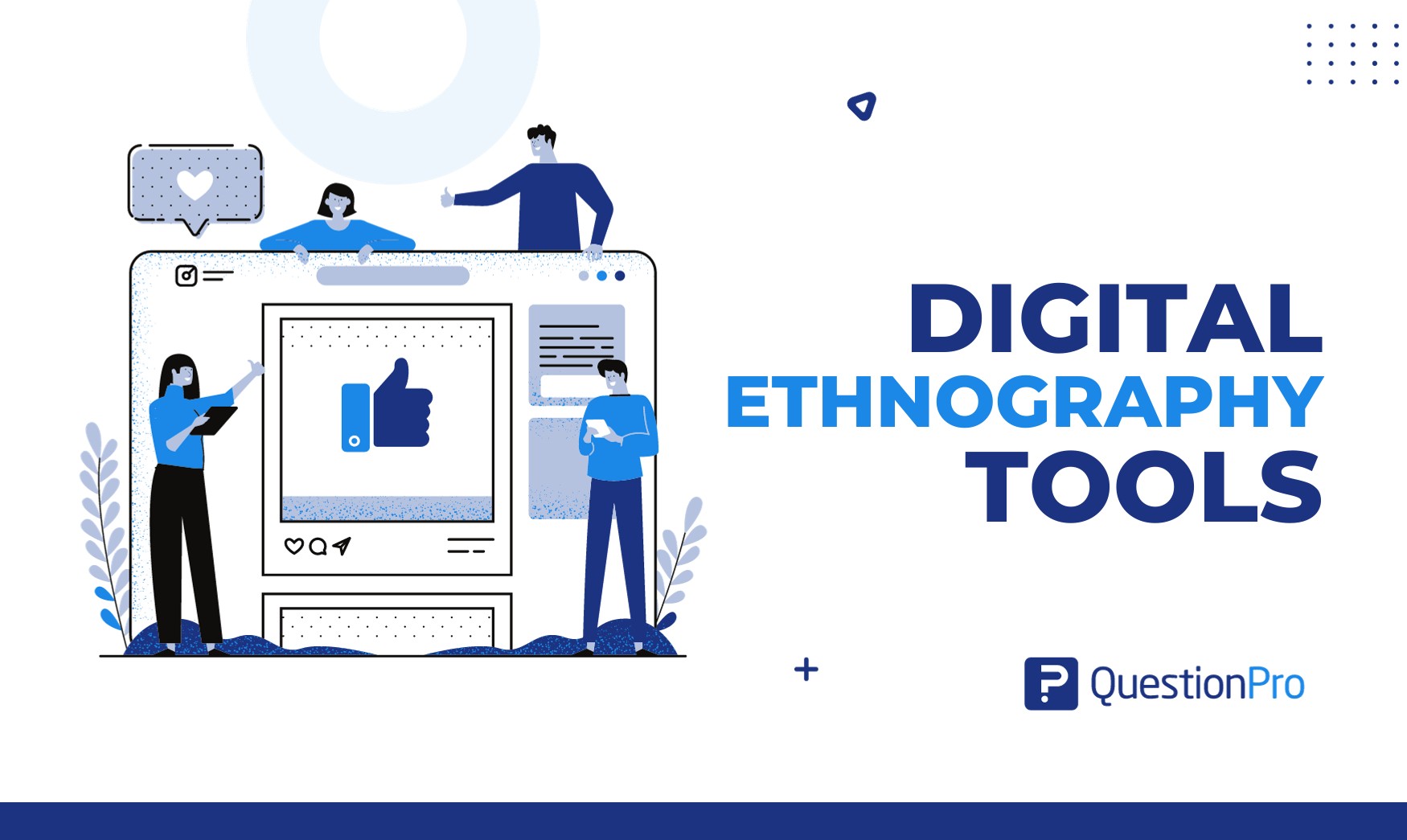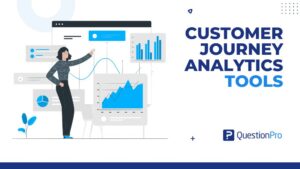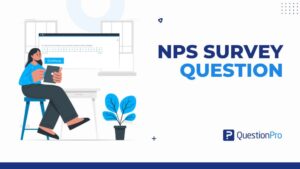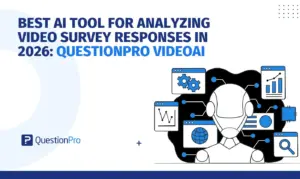
Digital ethnography has become an indispensable tool for researchers seeking to understand and analyze human behavior in the digital age. The need for advanced digital ethnographic research tools has grown exponentially as the world becomes increasingly interconnected through technology.
This blog will explore the seven best digital ethnography tools that empower researchers to dive into the intricate nuances of online cultures and behaviors. Here’s a general overview of how digital ethnography tools work and their key features:
What is digital ethnography?
Digital ethnography is an approach to studying and understanding human behavior, cultures, and social interactions in online or digital spaces. It applies traditional ethnography methods, which involve participant observation, interviews, and analysis of cultural artifacts, to the online world.
Digital ethnography explores how people communicate, form communities, and engage in various activities within digital environments, such as social media platforms, online forums, virtual worlds, and other online spaces.
Digital ethnography tools are software or platforms designed to facilitate the collection, analysis, and interpretation of data in the context of digital ethnography. These tools help researchers observe and understand online communities, behaviors, and interactions.
How Do Digital Ethnography Tools Work?
Digital ethnography tools facilitate the study and analysis of online communities, digital behaviors, and virtual spaces. These tools leverage various techniques to collect, analyze, and interpret data from online sources.
Here’s a general overview of how digital ethnography tools work:
1. Data Collection
- Text and Content Analysis: Digital ethnography tools often include features for analyzing text data, identifying patterns, sentiment analysis, and extracting key themes from textual content.
- Online Surveys and Interviews: Social Media Monitoring: Tools may track and analyze social media activity, including posts, comments, and interactions on Twitter, Facebook, or Instagram.
2. Participant Observation
- User Behavior Tracking: Some tools allow researchers to track user behavior within online spaces, observing how individuals navigate and engage with digital environments.
- Screen Recording: Tools may capture screen recordings or screenshots to document the user experience in specific digital contexts.
3. Interviews and Surveys
- Online Surveys and Interviews: Digital ethnography tools may include features for conducting online interviews or surveys to gather qualitative data from participants.
4. Visualization and Reporting
- Data Visualization: Tools often provide options for interactive data visualization through charts, graphs, and other visual representations to help researchers identify trends and patterns.
- Report Generation: Researchers can generate reports based on their findings, often with the ability to export data for further analysis.
Key Features of Digital Ethnography Tools
Digital ethnography tools have various features that enable researchers to study and analyze online communities and digital interactions. The key features of digital ethnography tools include:
Data Collection
Tools should support diverse digital source collection, including social media, forums, blogs, and online communities, covering text, images, videos, and other digital content.
Text and Sentiment Analysis
Many tools use natural language processing (NLP) for textual data analysis, including sentiment analysis, to gauge emotions in online content.
Social Network Visualization
Visualization aids in understanding social network structures, dynamics, and relationships within online communities, identifying influencers, and analyzing information flow.
Multimedia Analysis
Some tools handle multimedia content like images and videos, enabling insights beyond text-based data.
Participant Observation
Digital ethnography tools facilitate participant observation, allowing researchers to immerse themselves in online communities, observe interactions, and engage with participants.
Time-Series Analysis
Tools should support temporal analysis for tracking changes over time, helping research participants understand the evolution of online behaviors and community dynamics.
User Engagement Tracking
Tools should monitor user interactions and engagement in digital spaces, tracking likes, comments, shares, and other forms of engagement.
Data Privacy and Ethics
Tools must prioritize ethical considerations in a digital ethnography project, ensuring participant privacy, obtaining informed consent, and handling data ethically.
Cross-Platform Compatibility
Good tools support data collection from various digital platforms, accommodating online communities across websites and applications.
Customization Options
Flexible and easy-to-use customization enables researchers to adapt tools to specific research needs, defining search parameters, filters, and other criteria.
Real-Time Monitoring
Some tools offer real-time monitoring capabilities, keeping researchers updated on current trends and conversations within online communities.
Collaboration and Sharing
Collaboration features allow multiple researchers to collaborate, with options for sharing findings within the research community.
Reporting and Visualization
Tools should facilitate creating comprehensive reports and visualizations, using charts, graphs, and other visual representations to communicate findings effectively.
Data Export and Integration
Tools should provide options for exporting data for further analysis and integration with other research tools or platforms.
Things to Consider When Selecting a Digital Ethnography Tool
When selecting a digital ethnography tool, it’s important to consider various factors to ensure that it aligns with your research goals and provides the necessary features for an effective study. Here are some key considerations:
- Research Objectives: Identify your specific research goals and questions. Ensure that the tool supports your study’s data collection and analysis.
- Ease of Use: Choose a tool with a user-friendly interface. The easier it is to use, the more efficiently you can navigate through the features and conduct your research.
- Data Collection Capabilities: Evaluate the tool’s ability to collect data from diverse digital sources, such as social media platforms, forums, blogs, and other online communities.
- Analytical Features: Consider the analytical capabilities of the tool, including text and sentiment analysis, social network visualization, and multimedia analysis. Ensure it meets the specific analytical needs of your research.
- Data Privacy and Security: Ensure the tool complies with data protection regulations and prioritizes data privacy and security. This is crucial when dealing with potentially sensitive information from online communities.
- Cross-Platform Compatibility: Check if the tool supports data collection from various digital platforms and formats. It should be adaptable to the diverse nature of online spaces.
- Cost and Scalability: Understand the pricing structure of the tool and whether it fits within your budget constraints. Additionally, consider the scalability of the tool in case your research expands.
- Support and Training: Assess the availability of support resources and training materials. A tool that provides adequate support and training can contribute to a smoother research process.
- Ethical Considerations: Examine the tool’s approach to ethical considerations, such as participant consent, confidentiality, and transparency. Ensure that it aligns with ethical standards for conducting research in online spaces.
- Integration with Existing Workflows: Consider how well the tool integrates with your existing research workflows and tools. Seamless integration can enhance the overall efficiency of your research.
- Customization Options: Check if the tool allows customization according to your research needs. Flexibility in adapting the tool to unique study requirements is valuable.
- User Reviews and Reputation: Look for user reviews and testimonials to gauge the tool’s reputation. Feedback from other researchers can provide insights into the tool’s performance and reliability.
- Updates and Maintenance: Assess the frequency of updates and the level of ongoing maintenance provided by the tool’s developers. Regular updates indicate that the tool is actively supported and improved.
7 Best Digital Ethnography Tools
Digital ethnography involves studying and understanding online communities and cultures. Here are some tools commonly used in digital ethnography:
1. QuestionPro Communities
QuestionPro Communities is a comprehensive platform that allows researchers to engage with and understand online communities. It facilitates both qualitative and quantitative research methods.
Key Features:
- Community building and management.
- Surveys, discussions, and polls.
- In-depth analytics and reporting.
2. NVivo
NVivo is a widely used qualitative data analysis software that supports analyzing various data types, including text, audio, video, and images. It allows researchers to organize and analyze large amounts of data efficiently.
Key Features:
- Text and multimedia analysis.
- Coding and categorization of data.
- Visualization tools for pattern identification.
- Integration with social media and web data.
3. Indeemo
Indeemo is a platform that allows researchers to conduct mobile ethnography studies. Using a mobile app, participants can share their experiences through videos, photos, and diary entries.
Key Features:
- Mobile ethnography capabilities.
- Multimedia data collection methods.
- Real-time participant insights.
4. Dedoos
Dedoos is a platform that supports qualitative research and digital ethnography, providing data collection, analysis, and collaboration tools.
Key Features:
- Qualitative data analysis.
- Collaboration features.
- Reporting and visualization tools.
5. dscout
dscout is a research platform that enables remote and mobile ethnography studies. It allows researchers to engage with participants using smartphones in their natural environments.
Key Features:
- Mobile ethnography capabilities.
- Real-time data collection.
- Multimedia sharing by participants.
6. EthOS
EthOS is a digital ethnography platform designed for in-depth cultural insights. It supports collecting and analyzing rich multimedia data from various online sources.
Key Features:
- Cultural insights and analysis.
- Multimedia data collection.
- Collaboration tools for research teams.
7. Over the Shoulder (20|20)
Over the Shoulder (20|20) is a platform that facilitates real-time remote ethnography. Researchers can observe participants’ behaviors and interactions in their natural settings.
Key Features:
- Real-time remote ethnography.
- Observation of participant behaviors.
- Multimedia data collection.
Conclusion
As the digital landscape continues to evolve, researchers must adapt their methodologies to gain meaningful insights into human behavior online. The tools mentioned in this blog post offer advanced features and capabilities for conducting digital ethnography, enabling researchers to navigate the complexities of the digital realm and uncover valuable insights for their studies.
Whether studying online communities, social media interactions, or digital consumer behavior, these tools provide a solid foundation for researchers looking to delve into the intricacies of the digital world.
QuestionPro Communities is a versatile platform for digital ethnography, enabling researchers to conduct in-depth studies, analyze diverse data types, and uncover valuable insights within online communities.
QuestionPro Research Suite proves to be a robust platform for digital ethnography, offering versatile tools for comprehensive analysis. Its user-friendly interface enhances researchers’ capabilities to study complex online behaviors effectively.







